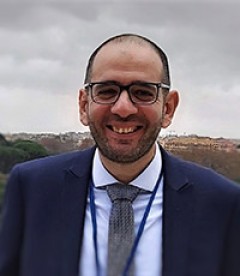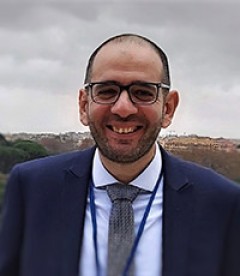|
|
The Government Monitor No. 22 - The Controversy over Amending the 2017 Election Law
WHAT’S THE ISSUE AT HAND?
After extending its own tenure three times since 2013, the Lebanese Parliament finally passed Law No. 44 on 16 June 2017, opening the way for the holding of the 2018 parliamentary elections. The new law introduced a number of major reforms to the electoral framework that were intended to improve representation. The election law has been brought back into public debate as Lebanon approaches the 2022 Parliamentary election, with several amendments being at the center of the dispute.
Election law No. 44 of 2017
Law No 44/2017 (“the 2017 election law”) moved Lebanon away from a majoritarian system to a more inclusive, proportional system that permits preferential voting, and allows for more accurate representation, in addition to allowing non-resident Lebanese citizens to vote. Under Article 3 of the 2017 electoral law, Lebanese living abroad were given the right to vote for the 128 MPs of Lebanon’s 15 electoral districts in the countries they reside in. However, according to Article 122 of the same law, in the following elections, the Lebanese expatriate community would be allotted six additional parliamentary seats (one for each continent) to represent them exclusively.[1] Significantly, the law also introduced for the first time (Article�
More ›
Research projects
2021
Land, natural resources and climate change in the Arab region
The Lebanese Center for Policy Studies (LCPS) is undertaking a desk review study on “land, natural resources, and climate change in the Arab region”. The...
More ›
2017
Oil and Gas Training
LCPS’s partnership with NRGI facilitated the training and knowledge building of government officials, journalists, and activists from across the MENA region who took part in...
More ›
2017
Confronting the Sectarian Myth
This project seeks to confront the dominant sectarian narrative in Lebanon and provide data and a model of analysis that is applicable to the broader...
More ›
Newsfeed
February 2018 / International Monetary Fund
Lebanon: Staff Concluding Statement of the 2018 Article IV Mission
A Concluding Statement describes the preliminary findings of IMF staff at the end of an official staff visit (or ‘mission’), in most cases to a...
More ›
September 2017 / World Bank
Cities of refuge in the Middle East: Bringing an urban lens to the forced displacement challenge
This policy note aims to advance our understanding of urban forced displacement, induced by conflict, by looking at the issue from the perspective of receiving...
More ›
August 2017 / World Bank
Reducing traffic congestion in Beirut: An empirical analysis of selected policy options
Beirut, the capital city of Lebanon, faces huge traffic congestion, the cost of which is estimated to be more than 2 percent of the city's...
More ›
|
of Lebanese people consider that the economic situation is their prime concern
of Lebanese people believe that the country is heading in the wrong direction
of Lebanese people think that there is corruption in the government
MPs exceeded their absence limit without any excuse between 2009-2017
out of the 352 laws passed in 2009-2017 address people's worries
Featured Analysis
|
لبنان في المؤتمر السادس والعشرين للأطراف في اتفاقية الأمم المتّحدة الإطارية بشأن تغيّر المناخ: بارقة أمل في نظام المناخ العالمي
انعقَد مؤتمر الأطراف السادس والعشرون "كوب26" الذي جمع الدول الأطراف في اتفاقية الأمم المتّحدة الإطاربة بشأن تغيّر المناخ ( UNFCCC)، في مدينة غلاسكو (المملكة المتحدة)، بين 31 تشرين الأوّل/أكتوبر و13 تشرين الثاني/نوفمبر 2021، وقد حضرَه أكثر من 120 رئيس دولة. وعلى الرغم من توصيف المؤتمر على أنَّه "لحظةٌ مِحوريّة لمُكافحة تغيُّر المُناخ" - بعد توقُّف المفاوضات لمدّة عامين بسبب جائحة كوفيد-19، أثارت نتائج المؤتمر ردود فعلٍ متبايِنة. وفيما اعتبر البعض التقدم المحرز علامةً مشجعة، جاءت النتائج مُخيِّبة للآمال بالنسبة لآخرين، لا سيما نظرًا إلى الطابع المُلِحّ للأزمة.
لمحة عن المؤتمر السادس والعشرين
برَز بعضُ بصيص الأمل في المؤتمر من... More › |

جورج متري
مدير برنامج الأرض والموارد الطبيعية في معهد الدراسات البيئية في جامعة البلمند
|
|
برنامج شفّاف وفعّال للمساعدة النقدية: حلم أم حقيقة؟
يتعرّض لبنان منذ العام 2019 لسيل جارف من الأزمات. فالانهيار المالي والاقتصادي المتواصل الذي تمرّ به البلاد اليوم ليس سوى حصيلة أكثر من 30 عامًا من سوء الإدارة الاجتماعية، والاقتصادية، والمالية، والضريبية، انهيار تفاقم مع انتشار جائحة كورونا، وضاعف من تأثيره الانفجار المدمّر في مرفأ بيروت.
طلبت الدولة اللبنانية مؤخرًا استئناف المفاوضات مع صندوق النقد الدولي للتصدي للأزمة الاقتصادية الحادّة التي يعيشها البلد. ولا شكّ في أنّ إطلاق برنامج وطني شامل للحماية الاجتماعية هو أمر بالغ الأهمية، ومن شأنه أن يشكّل مكوّنًا أساسيًا في خطة التعافي. سيتألّف البرنامج الوطني للحماية الاجتماعية من مشروع «شبكة الأمان الاجتماعي للاستجابة للأزمـة وجائحـة... More › |

ليلى داغر
هي زميلة باحثة أولى في المركز اللبناني للدراسات. وهي أستاذة مشاركة في الاقتصاد في الجامعة الأميركية في بيروت. |
|
Lebanon in COP26: Silver Linings in the Global Climate Regime
The 26th conference of the parties (COP26) to the United Nations Framework Convention to Climate Change (UNFCCC) convened in Glasgow, United Kingdom, from October 31 to November 13, 2021 and was attended by more than 120 heads of state. Even though COP26 was regarded as a “pivotal moment in the fight against climate change”—after two years of interrupted negotiations due to the COVID pandemic—the outcomes of the conference received mixed reviews. Some considered encouraging progress was made, while others were disappointed by the results, especially given the urgency of the crisis.
COP26 in a Nutshell
Some of the silver... More › |

George Mitri
Director, Land and Natural Resources Program, Institute of the Environment, University of Balamand
|
|
A Transparent and Effective Cash Assistance Program: Dream or Reality?
Lebanon has been subjected to an unrelenting torrent of crises since 2019. This ongoing financial and economic meltdown that the country is going through is the result of more than 30 years of social, economic, financial, and fiscal mismanagement, amplified by the COVID-19 pandemic, and further aggravated by the Port of Beirut explosion.
The Lebanese government has recently requested the resumption of negotiations with the IMF to address the deep economic crisis the country is facing. There is no doubt that a comprehensive national social protection program is critical, and will be a main component of the recovery plan.... More › |

Leila Dagher
is a Senior Research Fellow at LCPS. She is an Associate Professor of Economics at the American University of Beirut (AUB). |
|
A Transparent and Effective Cash Assistance Program: Dream or Reality?
Lebanon has been subjected to an unrelenting torrent of crises since 2019. This ongoing financial and economic meltdown that the country is going through is the result of more than 30 years of social, economic, financial, and fiscal mismanagement, amplified by the COVID-19 pandemic, and further aggravated by the Port of Beirut explosion.
The Lebanese government has recently requested the resumption of negotiations with the IMF to address the deep economic crisis the country is facing. There is no doubt that a comprehensive national social protection program is critical, and will be a main component of the recovery plan.... More › |

Leila Dagher
is a Senior Research Fellow at LCPS. She is an Associate Professor of Economics at the American University of Beirut (AUB). |
Activities
October 2018
Fundamentals of Oil and Gas Governance
An LCPS-NRGI Course
by the MENA Natural Resource Governance Hub
The Natural Resource Governance Institute (NRGI) and the Lebanese Center for Policy Studies (LCPS) have teamed up to establish...
More ›
November 2017
How Are Resource-Dependent MENA Countries Coping with Low Oil Prices? Governance, Macroeconomics, and Diversification
Register Here
Since 2014, oil prices have declined to their lowest level in twelve years. In parallel, recent trends, including shifts in energy demand, the abundance of...
More ›
September 2017
Fundamentals of Oil and Gas Governance
An LCPS-NRGI Course
by the MENA Natural Resource Governance Hub
The Natural Resource Governance Institute (NRGI) and the Lebanese Center for Policy Studies (LCPS) have...
More ›
|




